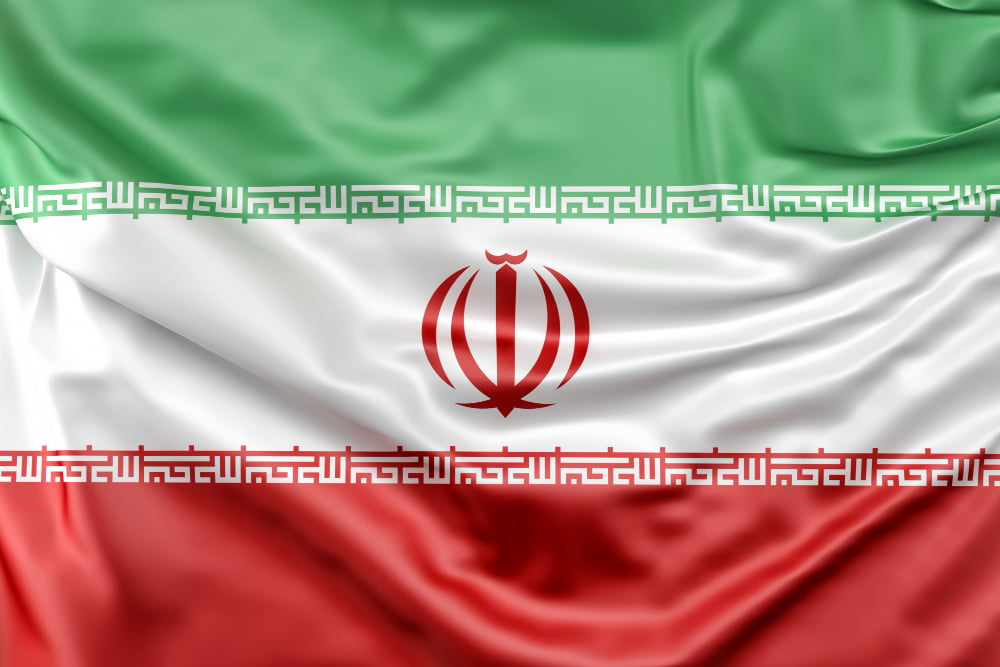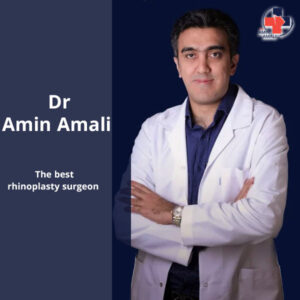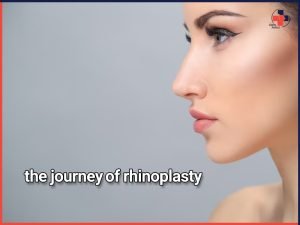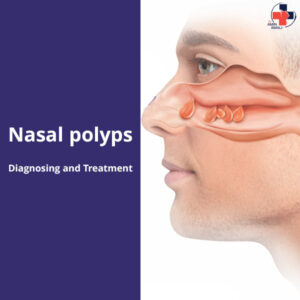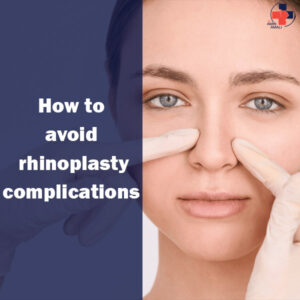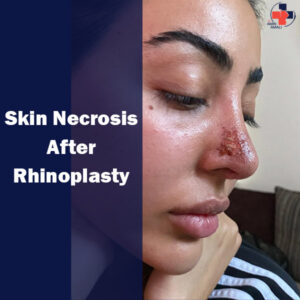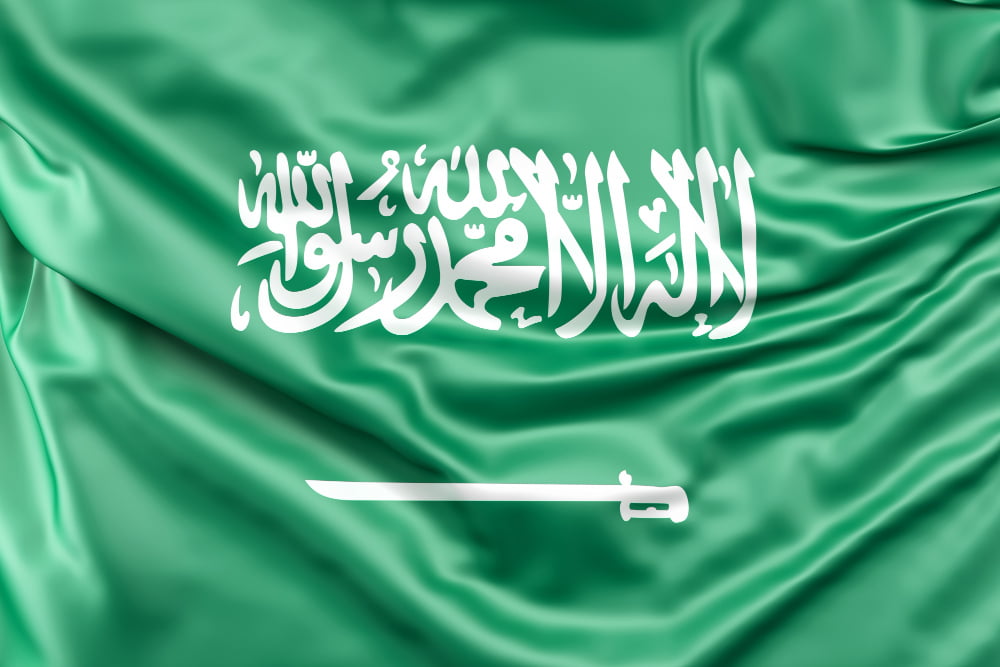Swelling is a common side effect of rhinoplasty, seen in almost all patients. The amount of swelling varies from person to person and depends on factors such as skin type, nasal anatomy, the surgeon’s skill, and post-operative care. Therefore, swelling after a nose job is considered a normal issue and there is no need to worry unless it becomes unusually severe. To control the swelling of your operated nose and help it heal faster, there are various methods you can use. In this article, we will inform you about the causes of swelling after rhinoplasty and how to control it.
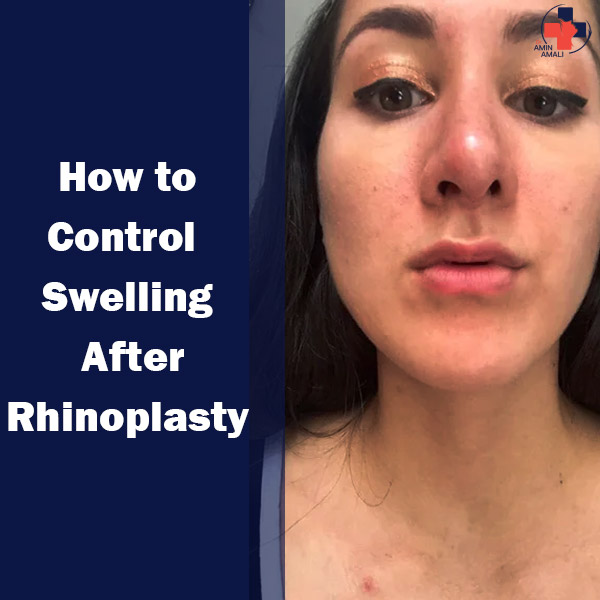
Causes of Swelling After Rhinoplasty:
- Trauma and Tissue Disruption: During rhinoplasty, the surgeon makes incisions and manipulates the nasal tissues. This process causes trauma and disrupts the blood vessels, leading to inflammation and swelling.
- Fluid Accumulation: After surgery, blood and lymphatic fluids may accumulate in the tissues around the nose, causing further swelling.
- Body’s Healing Response: As part of the healing process, the body sends white blood cells and other immune cells to the surgical site. This can also contribute to swelling.
The amount of swelling after rhinoplasty depends on several factors:
- Type of surgery: Surgeries that involve more changes to the structure of the nose will cause more swelling.
- Skin type: Thicker skin tends to swell more than thinner skin.
- Surgeon’s skill: More experienced surgeons can help reduce the amount of swelling.
- Post-operative care: Following post-operative care instructions can help reduce swelling.
Swelling after rhinoplasty usually subsides within a few weeks to a few months. In some cases, swelling may last up to a year or even longer.
Do the eyes also swell after rhinoplasty?
Yes, the eyes may also swell after rhinoplasty. This swelling is usually seen around the eyelids and under the eyes. Eye swelling after rhinoplasty is due to the accumulation of blood and fluids around the eyes. This swelling usually resolves within a few days to a few weeks. Here are some tips to reduce eye swelling after rhinoplasty:
- Avoid rubbing your eyes. Rubbing your eyes can irritate and increase swelling.
- Avoid wearing contact lenses. Contact lenses can irritate and dry out your eyes.
- Avoid wearing eye makeup. Eye makeup can irritate and infect your eyes.
- If the swelling of your eyes is severe, consult with the best rhinoplasty surgeon.
How to Control Swelling After Rhinoplasty?
- Ice Compresses: Applying ice packs to the sides of your nose and cheeks for 10-15 minutes at a time can help reduce inflammation and swelling.
- Elevation: Keeping your head elevated above your heart for the first few days after surgery can help prevent fluid accumulation in the nose.
- Pain Medication: Taking over-the-counter pain medications such as ibuprofen can help reduce inflammation and pain.
- Avoiding Strenuous Activities: Avoid strenuous activities such as heavy lifting, bending over, and exercising for at least a week after surgery. These activities can increase blood pressure and worsen swelling.
- Wearing a Nasal Splint: A nasal splint is a device that is placed on the nose after surgery to help support the new shape and reduce swelling. It is important to wear the splint as directed by your surgeon.
- Massage: Gently massaging the swollen areas around your nose can help improve circulation and reduce swelling.
- Diet: Eating a healthy diet rich in fruits, vegetables, and whole grains can help promote healing and reduce inflammation.
- Smoking and Alcohol: Smoking and alcohol can worsen swelling and delay healing. It is important to avoid smoking and alcohol for at least several weeks before and after surgery.
Note: It is important to follow your surgeon’s instructions carefully after rhinoplasty. They will provide you with specific instructions on how to care for your nose and manage swelling.
Additional Information:
- The amount of swelling after rhinoplasty varies from person to person. Most of the swelling will subside within the first few weeks, but it may take several months for the swelling to completely disappear.
- In some cases, patients may experience a late-onset swelling that occurs several weeks or months after surgery. This is usually due to scar tissue formation and can be treated with steroid injections.
- If you are concerned about the swelling after your rhinoplasty, it is important to contact your surgeon. They will be able to assess the situation and provide you with appropriate advice.
What to Eat and Avoid After Rhinoplasty to Reduce Swelling
Foods that can help control swelling:
- Anti-inflammatory foods: Anti-inflammatory foods such as fruits, vegetables, fatty fish, and olive oil can help reduce inflammation and swelling.
- Protein-rich foods: Protein is essential for repairing damaged tissues. To reduce swelling, consume protein-rich foods such as meat, poultry, fish, dairy, and legumes.
- Foods high in fiber: Fiber is important for digestive health and can help reduce constipation. Constipation can increase swelling. Fiber-rich foods like fruits, vegetables, whole grains, and legumes help reduce nasal swelling by preventing constipation.
- Drinking fluids: Consuming plenty of fluids is also important. Fluids help keep the body hydrated and help eliminate toxins. Water, natural fruit juice, and herbal tea are good options.
Foods to avoid:
- Salty foods: Salty foods can cause fluid retention and swelling.
- Fatty foods: Fatty foods can cause inflammation and increase swelling.
- Irritating foods: Irritating foods such as alcohol, caffeine, and spicy foods can cause inflammation and increase nasal swelling.
Here are some examples of foods you can eat after rhinoplasty for different meals:
- Breakfast: Oatmeal with fruits and nuts, boiled eggs with toast, yogurt with fruits and whole grains
- Lunch: Vegetable salad with chicken or fish, vegetable soup, sandwich with chicken or fish and vegetables
- Dinner: Tuna with vegetables, chicken breast with brown rice and vegetables, Greek salad

